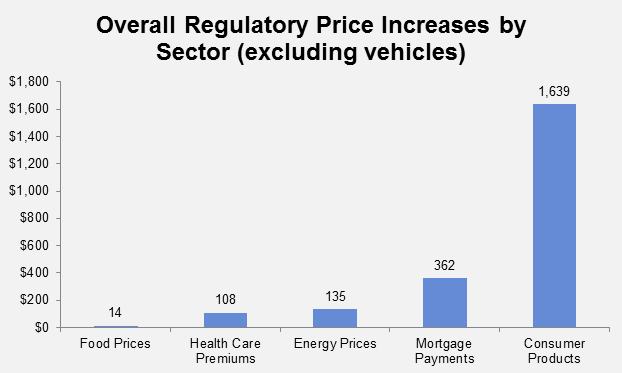Federal Regulations Drive Up Consumer Prices
< < Go Back
The 36 economically significant regulations issued by the Obama administration increase consumer prices by more than $11,000, according to a study from Sam Batkins, director of regulatory policy at the American Action Forum.
Regulations are deemed economically significant if they carry annual economic impacts greater than $100 million. Batkins looked at more than 50 rules that were determined to impact consumers, 36 of which quantified those impacts. The study added together the consumer price impact of those 36 regulations, dividing the price increases into six categories and estimating the increased cost that a single American consumer would pay due to the regulations.
The regulations were found to increase prices for vehicles, household goods and food, thus having profound implications on the broader economy. For just one consumer, the regulations increased the prices of the following consumer items:
• Vehicles: $9,150
• Household consumer products: $1,639
• Mortgage: $362 annually
• Energy: $135 annually
• Health Care: $108 annually
• Food: $14 annually
Regulations have the largest impact on the prices of vehicles due to the combined effects of fuel efficiency, safety and emissions standards, in addition to regulations on combination trucks. Recently, the EPA issued fuel efficiency regulations, concluding that a one percent increase in vehicle prices results in a one percent decrease in sales. A $3,100 vehicle price hike, writes Batkins, could decrease vehicle sales by 10 percent, costing jobs and billions of dollars in sales revenue.
While the study finds a total $11,000 in higher consumer prices, it looked at just 36 rules and used federal agency-provided data. Outside estimates of regulatory costs are even higher.
More From NCPA:




